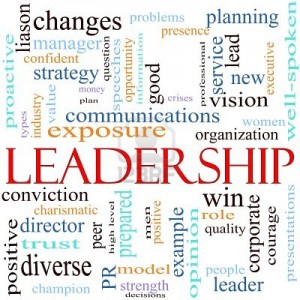Developing the Brand Called You
I’ve been doing some reading about leadership and creating a positive self brand. If you think about yourself in marketing terms — you are a brand. How you present yourself personally and professionally, how you respond to certain situations and certain people –all play a part in how your brand is perceived.
 I hate when people say Perception is Reality. I don’t think that is a fair approach to take to any situation. I believe that a good leader or mentor can bring out the best in people and help them create a brand that is not only positive but that can inspire and expand further than was even imagined.
I hate when people say Perception is Reality. I don’t think that is a fair approach to take to any situation. I believe that a good leader or mentor can bring out the best in people and help them create a brand that is not only positive but that can inspire and expand further than was even imagined.
In work situations, I have seen so many managers be so quick to point out their employees mis-steps and criticize their actions or reactions –but never once try to get to the heart of it and figure out how to HELP them learn how to approach it properly so they grow and learn from the situation. Every misstep, if done with good intentions, should be seen as a path to growth. Too many managers approach their people with anger as they address an issue.
What if we all stopped and thought “what could be the cause of the issue?”
- Maybe they didn’t understand the rules?
- Was there a catalyst that may have caused them to snap at a fellow team member?
- Are they starting to feel overwhelmed?
- Do they lack instruction and/or direction?
- Do they have what they need?
- Did they act out of malice?
- Is this situation being handled properly? (ie should the issue be talked about among the team members and not brought to the manager?)
I came across this blog: Leadership Freak, that offered some great insight into mistakes made by team leaders that I am sharing below:
The top mistake of team-leaders:
Weinzimmer and McConoughey say, “…drama mismanagement derails a leader’s ability to manage teams.” (The Wisdom of Failure)
According to Weinzimmer and McConoughey leaders contribute to overly dramatic atmospheres when they create dysfunctional harmony by:
- Bullying with intimidating tactics or demeaning comments.
- Trying to be liked by everyone.
- Insisting everyone likes each other all the time. The need to preserve the appearance of harmony leads to passive-aggressive behaviors within teams.
- Mismanaging competition within teams that leads to divisiveness.
This doesn’t just apply to managers — this is stuff to consider about you, the Brand! How do you react to any sort of conflict or issue in your day to day life? Do you stop and consider the intentions of the person causing the dis-chord or get to the root of the issue? I bet if you start there — you will find your answers.
One response to “Developing you, the Brand”
Really like the top mistakes of team leaders, if only those in management read these.